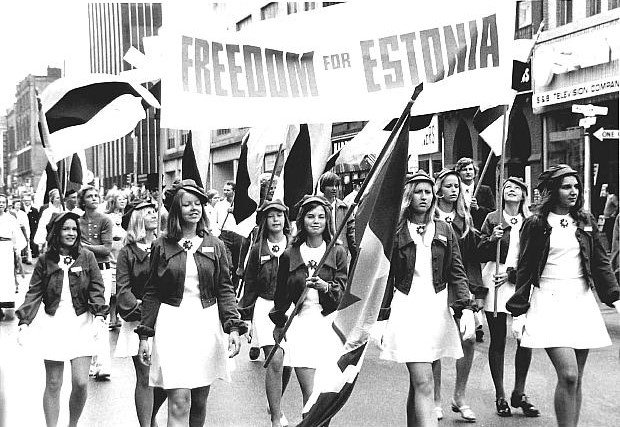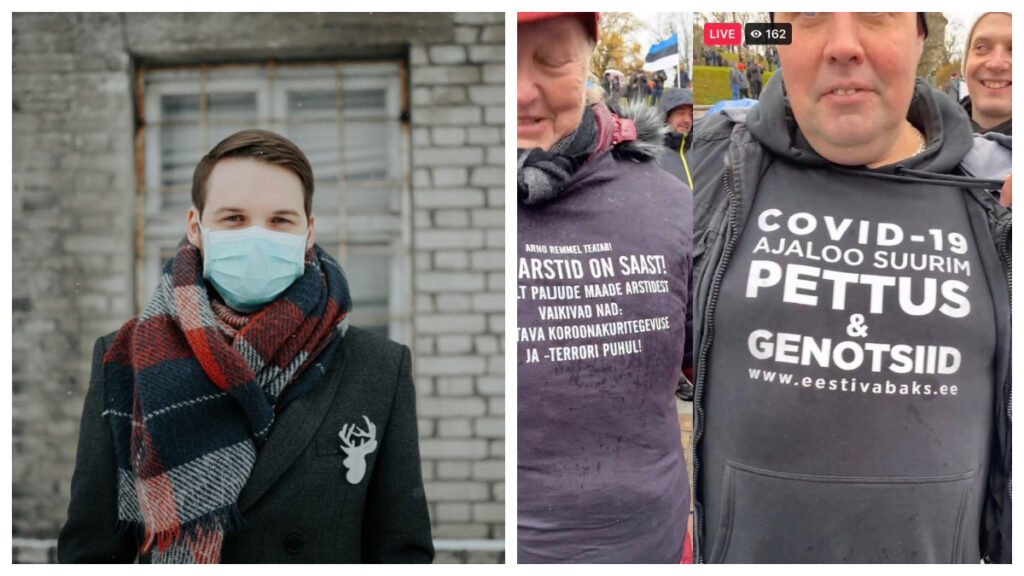Jaak Treiman, the honorary consul of Estonia in Los Angeles, California, writes that the spirit of liberty does not exist in a self-centred society where people’s freedom is unlimited – every democratic society must have some constraints on individual liberties so that all its members can maximise their freedom.
Recently, Estonia celebrated the 30th anniversary of the restoration of its independence – an appropriate time to look forward by looking back.
We look back and recall the demonstration at Hirvepark, the Declaration of Sovereignty, the Congress of Estonia. We remember the early, innovative endeavours of the societies for the protection of national monuments and the fortitude of Tunne Kelam, Trivimi Velliste, Heiki Ahonen and others as they wrote letters and memoranda demanding restoration of Estonian independence. We honour the sacrifices of political prisoners such as Enn Tarto, Mart Niklus and Lagle Parek.
We look back and recall companion events outside of Estonia – the Baltic World Congress organised demonstration in front of the Soviet embassy in Copenhagen; the work done by Baltic Appeal to the United Nations, the Baltic American Freedom League and the Estonian American National Council.
We recall the human rights conferences, the demonstrations, the political lobbying. We acknowledge the countless local groups of Estonians who maintained the Estonian cultural identity and engaged in their own localised political activities.

We have memories of explaining Estonia to our neighbours. We reminisce about our participation in song and dance festivals, whether at an Estonian House, in a public park or on a university campus, in our resolve to keep Estonian culture alive regardless of what happened politically.
We remember how Neeme Järvi, Rein Rannap, the Urb Brothers and others with broad cultural visibility took every opportunity to introduce Estonia to their non-Estonian public.
We must remember the motivation we had
But, if all we consider are past events and occurrences, we miss the point – we will have an incomplete and misleading picture. As we look back, we must remember the motivation for all the activities, for the sacrifices.
Yes, we wanted to restore Estonia to full membership in the family of nations. But, for many of us, the restoration of independence was not the ultimate goal. It was not what motivated us. Our goal was to re-establish the spirit of liberty that is part of a democratic society. The restoration of independence was a means to that end.

What was this “spirit of liberty” we sought to restore? I’m not sure if those words can be defined with exactitude but I know what it is not.
The spirit of liberty does not exist in a self-centred society where people’s freedom is unlimited. It does not give a person the right to yell “fire” in a crowded theatre. It does not bestow a right to socialise while sick with a contagious disease. It does not mean that one has the right to ignore red traffic lights or drive on the wrong side of the street. Every democratic society must have some constraints on individual liberties so that all its members rather than a privileged few can maximise their freedom.
The spirit of liberty is the freedom in which democracy thrives
The spirit of liberty is the freedom in which democracy thrives. It reflects the ideals contained in the British Magna Carta, America’s Declaration of Independence and the Bill of Rights, France’s Declaration of the Rights of the Man and of the Citizen and the United Nations’ Universal Declaration of Human Rights.
A distinguished American jurist of the last century, Judge Learned Hand, stressed that “The spirit of liberty is the spirit which is not too sure that it is right; the spirit of liberty is the spirit which seeks to understand the minds of other men and women; the spirit of liberty is the spirit which weighs their interests alongside its own without bias; the spirit of liberty remembers that not even a sparrow falls to earth unheeded…”

Estonia’s independence was restored. The opportunity to re-establish the spirit of liberty came to fruition. What has happened since then? Have we made good use of the opportunities our restored independence has given us? Have we lived up to the ideals we sought to achieve? Does our conduct honour our ideals?
By itself, restoration of independence meant nothing. On the other hand, a restored independence that embodies the spirit of liberty, a spirit that we sought and we must continue to seek, means everything.
The opinions in this article are those of the author. This is a lightly edited article first published in the Estonian American Business Alliance newsletter.
Cover: Two opposite mentalities in a strongly polarised Estonia – one complying with the rules and recommendations to diminish the risk of acquiring and spreading the COVID-19 virus; the other believing and spreading conspiracy theories, blaming doctors and ignoring all the rules and recommendations with regards to the virus. First photo by Pille-Riin Priske on Unsplash. Second photo taken from a protest on 23 October, when hundreds of people gathered at Tallinn’s Freedom Square to protest vaccines and the government’s efforts to curb the spread of the virus (screenshot from a Facebook live video). The images are illustrative.

